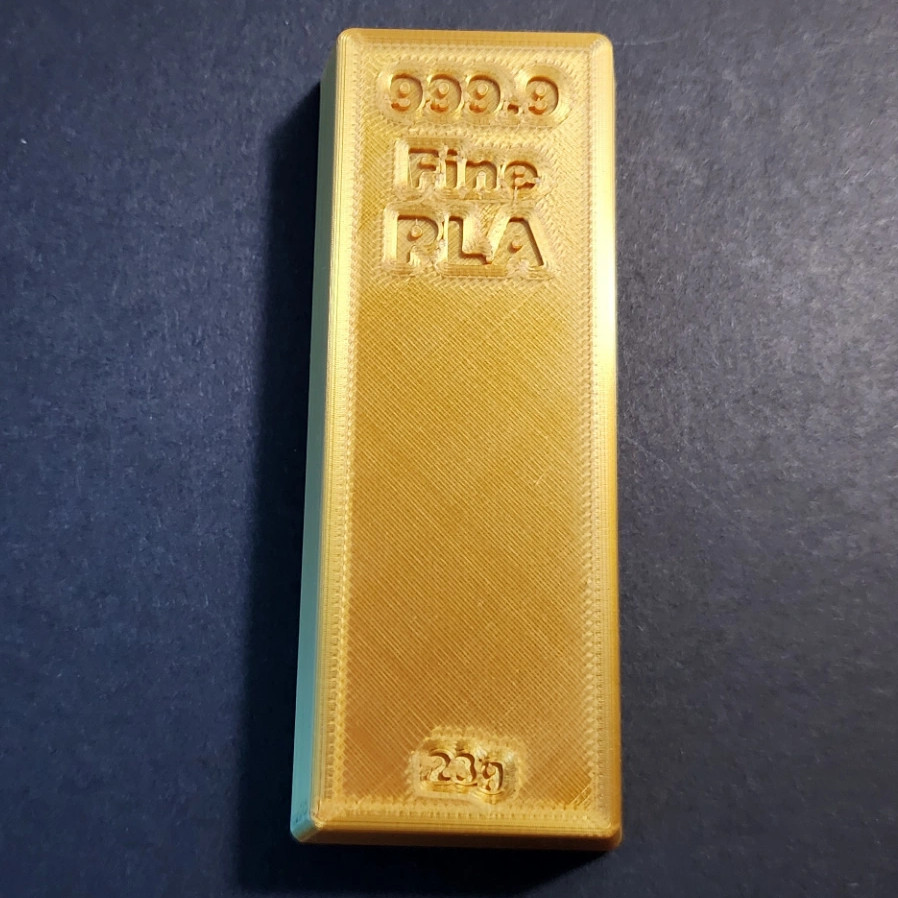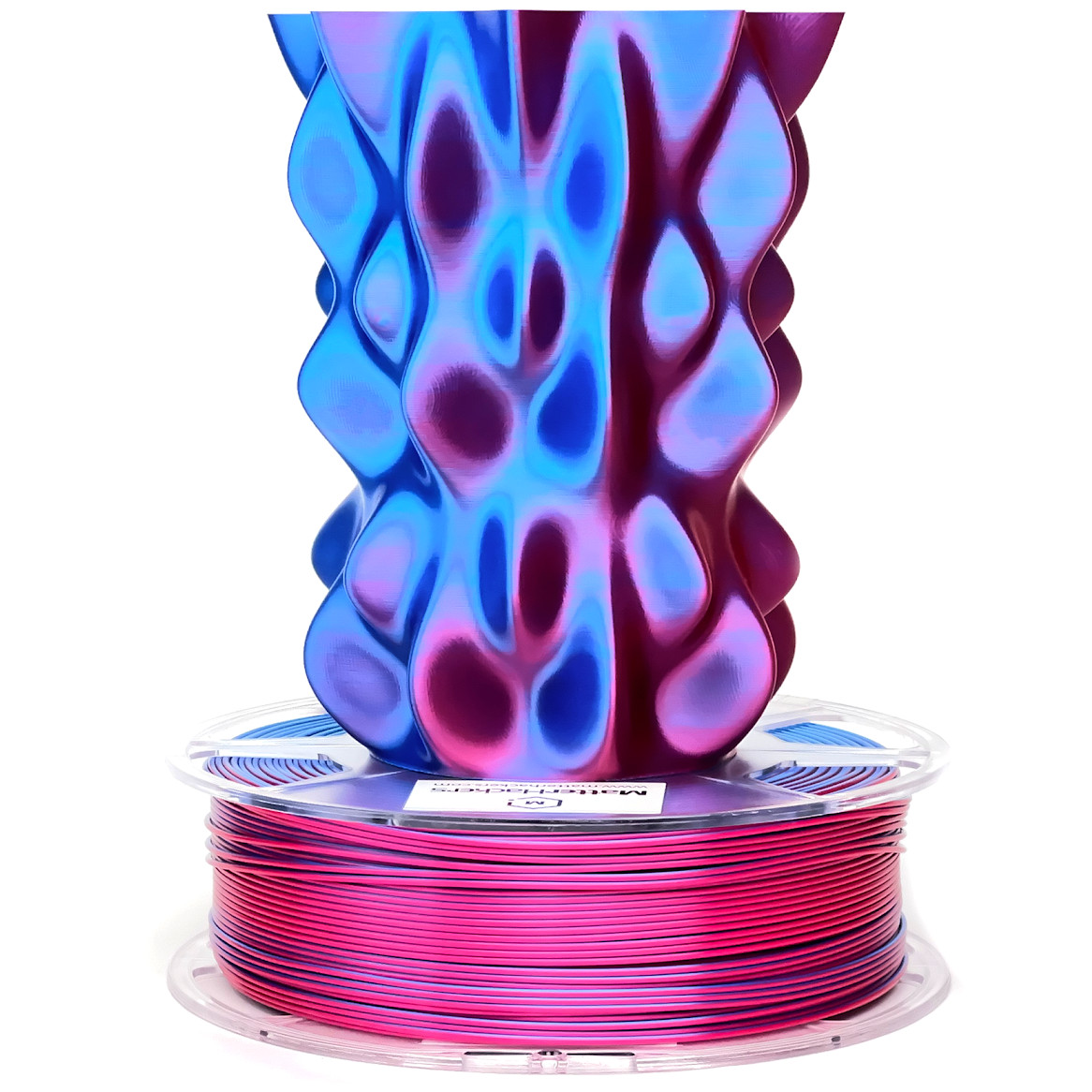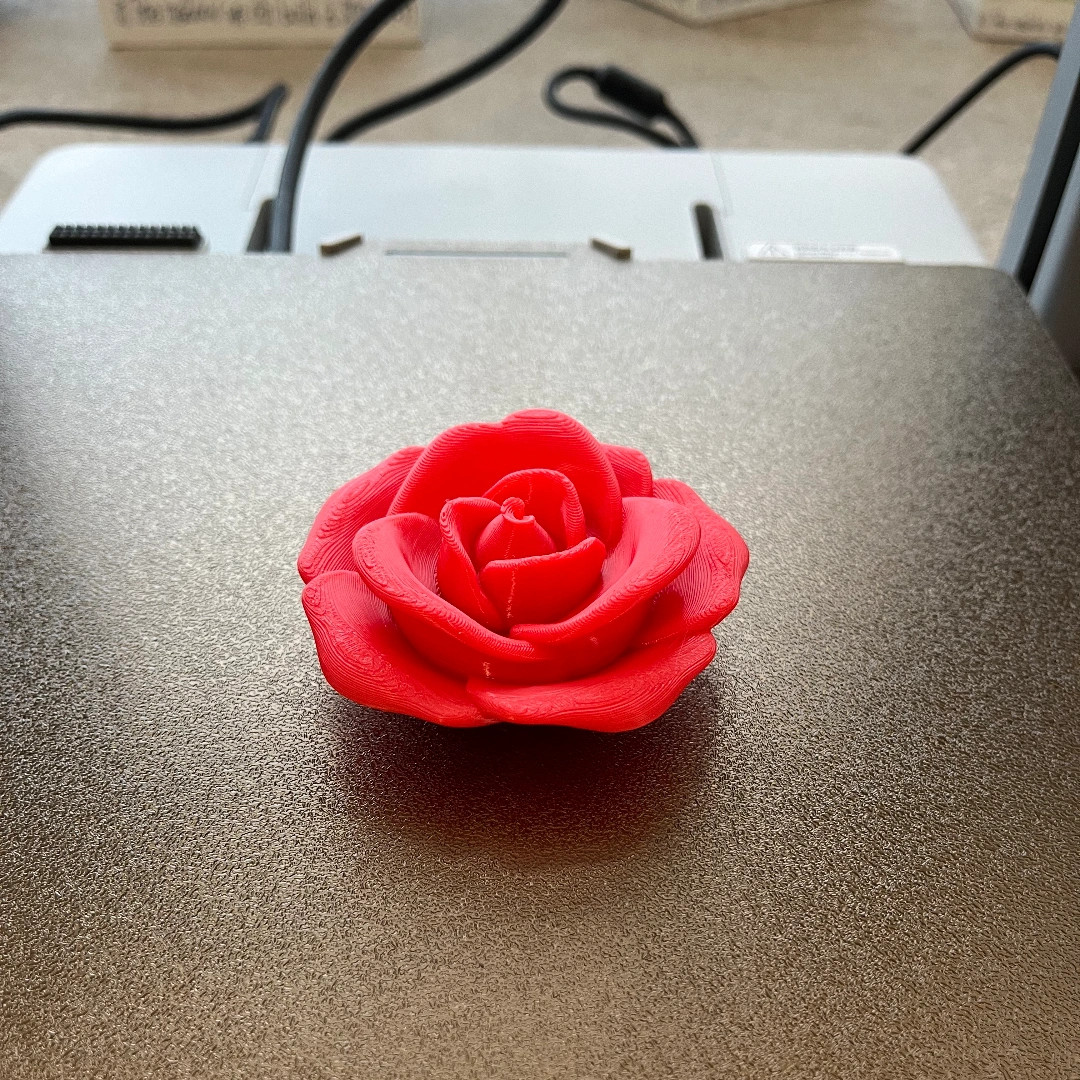
Stopping to Smell the (3D Printed) Roses

If you make a purchase using a shopping link on our site, we may earn a commission. Learn More
I’m a technical person. I’ve always been “function over form”. I approached 3D printing the way I approach anything. It’s a technical activity combining computers, machines, electronics and the material properties of molten filaments. I wasn’t going to print anything pretty, I was going to calibrate and test the printer, print upgrade parts and print functional parts. And that’s it. Right? So that’s how I went about 3D printing at first. And eventually I ran out of upgrade parts to print, then out of functional pieces. I needed inspiration to expand my skills and knowledge and I needed to take on more challenging prints to continue growing.
My wife is a creative, artistic person. She wanted to see some decorative prints for display around the house, and I wanted to prove how useful and interesting my new toy could be. So I was pleased to print something impressive for her. But what?
Browsing Printables, some interesting-looking prints had a name I had not encountered before: Voronoi. All the prints called “Voronoi” were lacy, meshed, open objects with random-sized, unique “cells” that have angled edges. It’s all driven by mathematics and the resulting shape is unique to 3D printing - these objects are not easily made by any other method. These shapes looked really impressive and could nicely show off what a 3D printer could do.
I decided on a Voronoi toothbrush holder. There was a practical aspect to it, sure. It would be useful for holding toothbrushes or pens. But that could be done much more easily using a simple plain cylinder. This would be challenging. It would challenge my slicing skills, but I had been getting more and more confident with Cura. It would challenge my Creality Ender 3 V2 Neo - there are thousands of retractions all taking place over about 14 hours of printing, Each action had to go well - too many failures, particularly in the bridging over each cell, would disrupt the Voronoi cells located above that area and cause them to fail as well, then the rest of the print would become unadhered. It would also challenge the only filament I had at the time - eSUN PLA+ white. While it is impressively strong and hard, I hadn’t quite calibrated retractions perfectly. The printing instructions indicated to print it at a lower temperature with sufficient cooling to ensure good bridging, but eSUN PLA+ prints best at high temperatures and the Ender 3 V2 Neo doesn’t have great cooling. So it seemed quite challenging. But let’s give it a go - you never learn anything without trying first.
And, 14 hours later…
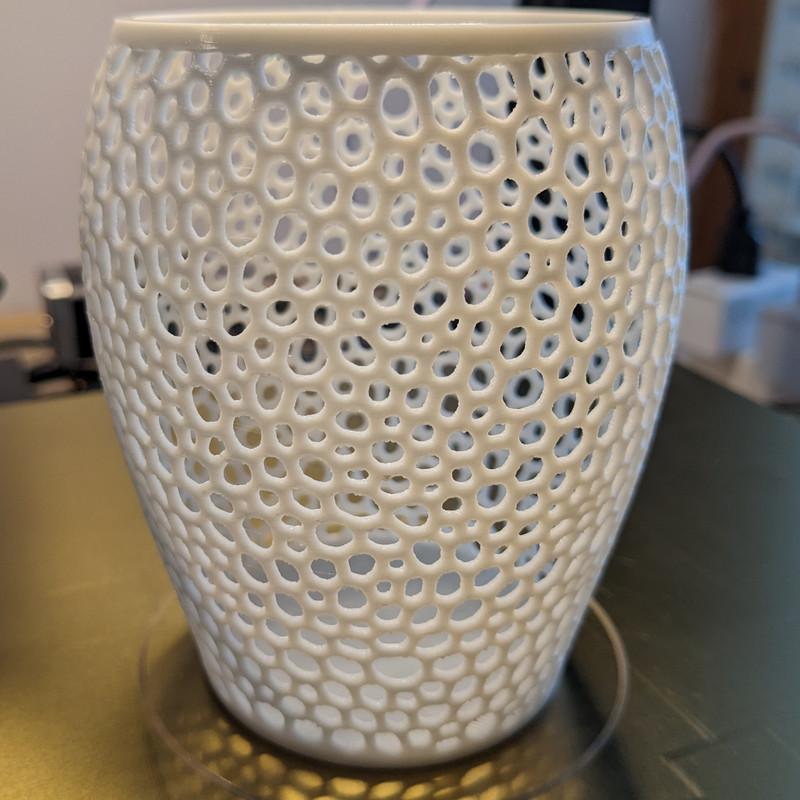
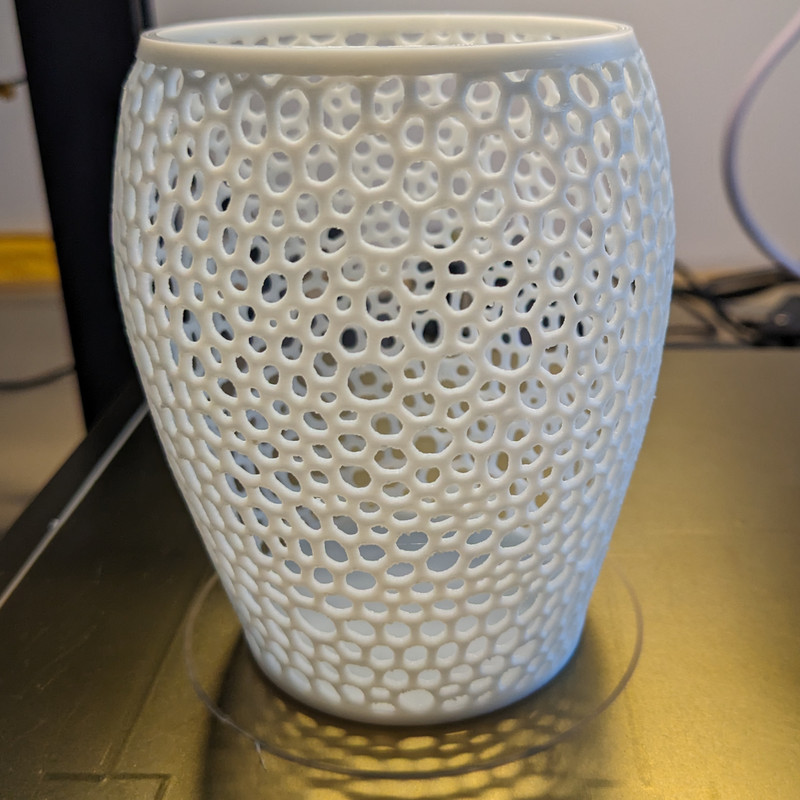
More than all the technical aspects though, the print is mesmerizing. It is, quite frankly, beautiful. There, I said it. It is beautiful, and it doesn’t have to do anything other than being beautiful. It is the first thing I have ever created using my technical abilities that could be considered beautiful.
Everyone I showed it to agreed, and my wife was thrilled. I had very convincingly justified my new 3D printing obsession and my Ender 3 V2 Neo had proven its usefulness. I had made something solely for the purpose of looking beautiful.
I can appreciate that beauty and I wanted more. I knew I could make even more impressive prints, purely for the aesthetic aspects. This is what this technology enables.
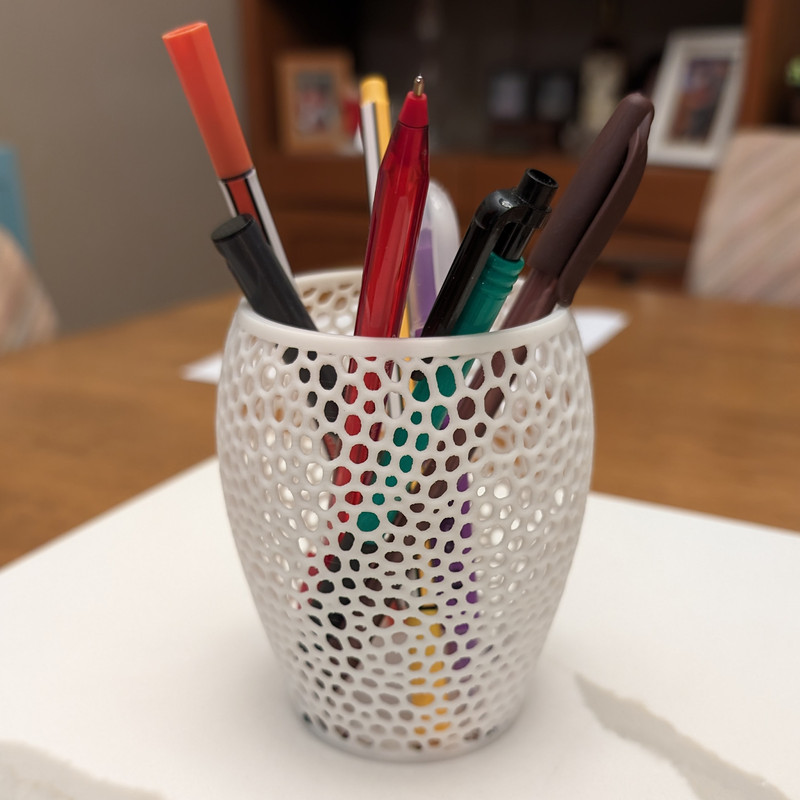
So try it! Print something just because it looks cool. Print something just because it’s beautiful. It doesn’t have to have a purpose except just looking amazing. There is artistry in all this G-code, stepper motors, nozzles, and fans. You too can be an artistic person, and that’s OK, especially if you’ve ever thought you weren’t.
Read more from the An engineer gets artsy series
Mass Printing on the Bambu Lab A1 mini
June 15, 2024
Using a 3D Printer to Turn Straw PLA into Gold
June 25, 2024
June 30, 2024
